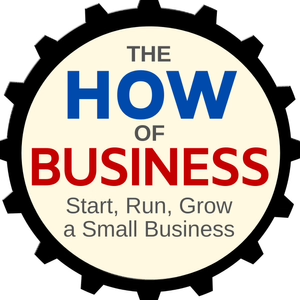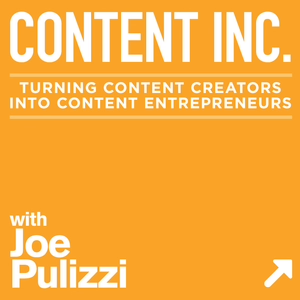
Micah Brown about his early days in South London where he learned how to hack the processes that screened out people like him.
Explicit content warning
01/16/18 • 28 min
Terri talks to Micah Brown about his early days growing up in South London, becoming Mr. Banker Man while working at Barclay’s starting at age 16, and how learned to hack the processes that screened out people like him. This is the first of a two-part interview where he gives us the background that eventually led to starting Film Fundr and Centiment.io.
Who is Micah Brown? Micah is a self-proclaimed visionary technologist with an intersection of skills consisting of data and algorithm understanding, HCI-centric digital technologies, financial services, financial engineering and media services. He has over 10 years of experience (up to the SVP level) across companies like Aon, Barclays, NBC and Viacom. Micah has a deep technological understanding and a strong commitment to social causes; at the center of Centiment and FilmFundr is the need to level the playing field in media for minorities. Show Highlights- Micah talks about growing up in South London in a very Christian, strict and sheltered household with his dad who was a pharmacy technician and his mom who was a hairdresser
- Micah’s dad was a trained pharmacist in Jamaica and had his own pharmacy when he met Micah’s mom and proposed when they first met. Eventually she said yes and because his mom had dual citizenship, after they married, they moved to the UK.
- Terri tells the story of her dating and dumping her husband three times starting in 8th grade and how they eventually got married when they were 26 and are still married 21 years later. They met when they were 10 in the 5th grade (or so her husband remembers as he met both Terri and her identical twin sister Sherry on the same day).
- Micah talks about his early work days and earning money to learn how to code that eventually led to working at Barclay’s Bank as a cashier at 16, being called Mr. Banker Man and how he ended up in credit risk at 17.
- He kept getting turned down for a Barclay’s job because he didn’t have a degree and found a different way to be seen as a person, and not just a number, to get the credit risk job.
- Micah talks about how the tech incumbents create mental moats around fairly simple things seem impossible for women and people of color. There is mythology around these things that makes these people think that it’s too hard and impossible, and not for them and this needs to stop.
- Terri talks about how the check-the-box criteria perpetuates the problem associated with screening out a diverse candidate set because the checkboxes tend to only allow in one set of candidates that all fit the same mold. It’s not about lowering the standards; it’s about changing the requirements to introduce a new and more powerful dynamic.
- Micah talks about the cognitive dissonance associated with how the hierarchical society is supposed to work versus how it actually works here in the US.
- We end abruptly with Micah talking about how he counters some of this with raw intellect and data which he explains in detail in the second part of the interview.
- Centiment: https://centiment.io/beta/
- Film Fundr: https://filmfundr.com/
- Piloting Your Life episode 26 with Chris Brown: http://www.terrihansonmead.com/podcast/pyl026
- Portfolia: http://www.portfolia.co/
Terri talks to Micah Brown about his early days growing up in South London, becoming Mr. Banker Man while working at Barclay’s starting at age 16, and how learned to hack the processes that screened out people like him. This is the first of a two-part interview where he gives us the background that eventually led to starting Film Fundr and Centiment.io.
Who is Micah Brown? Micah is a self-proclaimed visionary technologist with an intersection of skills consisting of data and algorithm understanding, HCI-centric digital technologies, financial services, financial engineering and media services. He has over 10 years of experience (up to the SVP level) across companies like Aon, Barclays, NBC and Viacom. Micah has a deep technological understanding and a strong commitment to social causes; at the center of Centiment and FilmFundr is the need to level the playing field in media for minorities. Show Highlights- Micah talks about growing up in South London in a very Christian, strict and sheltered household with his dad who was a pharmacy technician and his mom who was a hairdresser
- Micah’s dad was a trained pharmacist in Jamaica and had his own pharmacy when he met Micah’s mom and proposed when they first met. Eventually she said yes and because his mom had dual citizenship, after they married, they moved to the UK.
- Terri tells the story of her dating and dumping her husband three times starting in 8th grade and how they eventually got married when they were 26 and are still married 21 years later. They met when they were 10 in the 5th grade (or so her husband remembers as he met both Terri and her identical twin sister Sherry on the same day).
- Micah talks about his early work days and earning money to learn how to code that eventually led to working at Barclay’s Bank as a cashier at 16, being called Mr. Banker Man and how he ended up in credit risk at 17.
- He kept getting turned down for a Barclay’s job because he didn’t have a degree and found a different way to be seen as a person, and not just a number, to get the credit risk job.
- Micah talks about how the tech incumbents create mental moats around fairly simple things seem impossible for women and people of color. There is mythology around these things that makes these people think that it’s too hard and impossible, and not for them and this needs to stop.
- Terri talks about how the check-the-box criteria perpetuates the problem associated with screening out a diverse candidate set because the checkboxes tend to only allow in one set of candidates that all fit the same mold. It’s not about lowering the standards; it’s about changing the requirements to introduce a new and more powerful dynamic.
- Micah talks about the cognitive dissonance associated with how the hierarchical society is supposed to work versus how it actually works here in the US.
- We end abruptly with Micah talking about how he counters some of this with raw intellect and data which he explains in detail in the second part of the interview.
- Centiment: https://centiment.io/beta/
- Film Fundr: https://filmfundr.com/
- Piloting Your Life episode 26 with Chris Brown: http://www.terrihansonmead.com/podcast/pyl026
- Portfolia: http://www.portfolia.co/
Previous Episode

Terri's Angel Investments and her investment strategy
Terri and her producer Jacqueline sit down over some champagne to talk about how she made her first angel investment in MyHealthTeams and realized after her second, third and fourth investments (Sandstone Diagnostics, Zum and TomboyX) that her investment thesis was to invest in companies with products or services that improve people’s lives. Now she is focused exclusively on digital health which is a narrowing of her original thesis. Show Highlights
- Terri makes the intro as to the topic and why this week she is talking about her angel investments
- Terri is going to be on a medtech angels panel at RESI in San Francisco this week and will be focused on her investment interest area of digital health while the other panelists will most likely be focused on
- Terri talks about the need to leverage data and technology to flip healthcare on its head and put information in the hands of patients
- Terri talks about how optimistic she is about Apple’s approach to changing healthcare versus how disappointed she is with Google and Verily and her experience with Project Baseline
- Terri’s first angel investment was in: MyHealthTeams: social networks for millions of people living with chronic illnesses. They currently have 28 conditions including MS, Lupus, HIV, diabetes, Parkinsons. Female co-founder based in San Francisco. Terri has doubled down on this company in their Series B and Series C raises.
- Jacqueline asked what an investment thesis is and Terri responded that she sees it as the criteria under which she chooses in her investments. Her investment thesis is to invest in companies that have products or services that improve people’s lives.
- Terri talks about not actively looking for diverse founding teams but gravitating towards
- Sandstone Diagnostics: home sperm count device and kit with an application for men to monitor their sperm count from home with guidance for improving the count from the application. The product is Trak and is FDA cleared. Founder was male but they brought in a new CEO, Karen Drexler shortly after Terri’s first investment (she’s tripled down on this one). They are based Livermore, CA.
- Zum: on demand and scheduled rides and care for kids ages 5 and up. Terri has tripled down on her investment with them. Female CEO and co-founder. If this had existed when her kids were little, her husband could have continued to work. Sequoia led a $5M Series A in early 2017 which is a good signal.
- Jacqueline asks Terri how she decides to invest in a company. Her response:
-
- She listens to her gut
- It has to be something that the world needs
- She has to believe the management team is going to take the company far
- There has to be a big enough market opportunity
- The company needs to have a big enough opportunity that a VC will invest to help the startup grow
- It has to make sense and be reasonable and rational
- She looks for revenue opportunities and the possibility of getting profitable
- Terri is an EIR (advisor) with Tech Futures Group and sees a lot of people looking for angel investors to invest in their research projects. This doesn’t resonate well with Terri; she needs to be able to see a path to revenue.
- TomboyX: underwear, swimwear, socks and hats designed for people regardless of where they fit into the size or gender spectrum. Terri knows many women who have been buying men’s underwear that doesn’t quite fit them. The female co-founders saw this as an opportunity and have created a fabulous brand and product. Terri’s daughter and one of Jacqueline’s daughters loves their underwear. Terri has tripled down on this one. They are based in Seattle, WA. Terri loves the brand play and sees them as an early exit to a company like Calvin Klein, Nordstrom, Fruit of the Loom, or Hanes.
- Terri talks about the shift in demographics and how women would much rather buy, and pay a premium, for products made for them.
- Jacqueline asked why Terri invested in TomboyX again. Terri continued to believe in what they were doing, was impressed with their growth, and she wanted to continue to support them as they encountered cash crunches due to their growth. Terri is frustrated by the lack of funding opportunities for some of these companies.
- Terri was asked to contribute an essay for a book that Jenn LeBlanc is writing about supporting female founders. Terri is determined to work with other like-minded women looking to invest in some of the overlooked opportunities by creating a mesh network of investors across the country and around the world.
- Tactical Haptics: tactical feedback controller, initially for VR. Long term, medical training. All male team based in the San Francisco Bay Area.
- Terri believes that women need to take bigger financial risks to achieve the rewards that men are able to achieve.<...
Next Episode

Micah Brown on changing the funding dynamics for founders of color and female founders and ultimately the definition of success
Terri talks to Micah Brown about his experience as a founder of color in New York City and how we can change the funding dynamics for founders of color and female founders and ultimately the definition of success. This is the second part of the interview that we abruptly cut off last week leaving you, hopefully, hanging on the edge of your seat for Micah’s experience with the diversity investor. Wait no more.
Who is Micah Brown?
Micah is a self-proclaimed visionary technologist with an intersection of skills consisting of data and algorithm understanding, HCI-centric digital technologies, financial services, financial engineering and media services. He has over 10 years of experience (up to the SVP level) across companies like Aon, Barclays, NBC and Viacom. Micah has a deep technological understanding and a strong commitment to social causes; at the center of Centiment and FilmFundr is the need to level the playing field in media for minorities.
Show Highlights
- Micah talks about an experience with an investor with a diversity lens who led him to take a hard, corrective action. The investor said that Micah was example of a POC founder that should be invested in although he doesn’t actually invest in diversity.
- Micah points out some logic to the investor about his portfolio, the data around the startups in his portfolio, and then the data about the POC company in his portfolio which was beating out all the other companies in the portfolio.
- Micah points out the importance of deploying raw intellect with these investors to point out the flaws in the investors’ hypotheses to ultimately shift.
- Terri talks about how difficult for people to shift off their value sets to
- Terri poses the question as to whether we are going to be able to get these primarily white male investors to shift in their investing or do we need to create a new ecosystem of funding.
- Micah talks about how difficult it is starting up a company and raising money and the difficulty for the investors to empathize with struggling founders of color.
- Micah talks about the difficulty in getting funding if you are a person of color because of the makeup of the current VCs.
- Micah talks about the importance of getting LPs to invest in funds that can create a new ecosystem of funding to invest in startups because right now saying that you invest with a diversity lens is PR and there is no substance behind it.
- Micah talked about the H&M and Pepsi advertisement debacle where they had badly sourced focus groups. This was a perfect example of why having people who could potentially be offended in the decision-making process
- Last year in NYC, there were 780 non-POC companies that got funding in 2017 and only 15.
- He talked about the importance of naming and shaming to raise awareness and begin to affect change.
- Terri talked about how Trump’s election triggered many people, including her, to no longer be complacent, and emphasized the need to speak up and take action. She was cautiously optimistic after the Justin Caldbeck scandal but then more optimistic after Harvey Weinstein and then the politicians in terms of we might be able to move the needle and move more quickly in leveling the playing field.
- Terri talks about the importance of getting LPs to invest not because it’s a diversity play, but because it’s a good business play. Terri is concerned about the funding gap in later stages for these startups.
- Centiment is brain-powered advertising. Micah said that big companies are able to get away with what they are doing because their processes and perspectives are narrow. Centiment.io is scalable neurocomputing delivered by SaaS that can be used to provide responses as one would get in focus groups. They have an emotional search that takes the ideas and provides feedback as to what the emotional response will be.
- If Micah could wave a magic wand, he would change the definition of success. Once you change the definition of success, you can affect so much including how women perceive themselves and promoting opportunities for the American Dream for a larger group of people.
- Micah and Terri talk about what they have sacrificed, and the cost associated with pursuing ‘success’ as it is currently defined.
Terri’s Key Takeaway
We need to redefine the definition of success that is more inclusive and is more aligned with a broader value set.
References in the Podcast
- Centiment: https://centiment.io/beta/
- Film Fundr: https://filmfundr.com/
- Harlem Capital Partners: http://harlem.capital/
- Kapor Capital: http://www.kaporcapital.com/
- Backstage Capital: http://backstagecapital.com/
- Charles Hudson: @chudson <...
If you like this episode you’ll love
Episode Comments
Generate a badge
Get a badge for your website that links back to this episode
<a href="https://goodpods.com/podcasts/piloting-your-life-104899/micah-brown-about-his-early-days-in-south-london-where-he-learned-how-5471524"> <img src="https://storage.googleapis.com/goodpods-images-bucket/badges/generic-badge-1.svg" alt="listen to micah brown about his early days in south london where he learned how to hack the processes that screened out people like him. on goodpods" style="width: 225px" /> </a>
Copy




